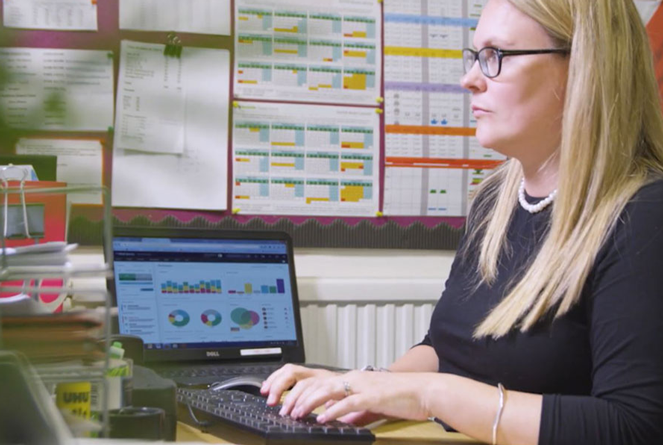Introduction
Embarking on a new journey—whether it’s a new job, a change of role, or joining a new department—brings a mix of excitement and uncertainty. Just like the opening of a story, the beginning of your time at a new school sets the stage for what’s ahead. That’s why a well-structured induction matters: it’s the foundation for a successful teaching career and workplace experience.
We understand the crucial role that inductions play in school staff development. In this article, our HR experts break down 10 best practices for staff inductions in schools and academies, so you can ensure your school’s new staff find their place and thrive from day one.
What is staff induction?
Induction is the process your new employees go through to acclimatise to their new job and working environment. You may recall your induction programme when you started your job and that you spent time getting to know people and processes in the school, which helped you integrate at the early stages of your appointment.
Induction mostly applies to new employees, but sometimes existing staff who have an internal move may need an induction also, especially if there are significant changes to their role and/or if there is a change of department or location.
Once an employee commences work it is important to initiate an effective induction process which will mean that new staff are clear about their job so they feel secure about what they should be doing.
Remember that first impressions count, and a positive induction and on-boarding process will support the retention of your new employee that you have worked so hard to recruit.
What are the benefits of induction?
A successful induction will enable the new employee’s initial introduction and integration into the school and involves familiarisation with key people and processes during the first weeks in their new role.
Induction is so important. It helps them to feel secure about their job and provides them with the required information about where to find resources and key contacts in the school. A good induction will ensure that the new employee is fully engaged from the outset of their employment.
Induction is also important to enable a new employee to orientate themselves in their role and with the school. It is key to ensure the new employee feels that they belong from the outset which in turn makes the new employee feel valued, welcomed and you are more likely to retain them.
As a school and employer, it’s vital to make a good first impression and a poor induction, or not having an induction at all, can lead to the new employee feeling undervalued during their initial time with you.
Don’t forget that a good induction really sets the standard and will reflect well on you as a school leader. A successful induction will also enable the new employee to make a positive contribution to the school quickly.
What should an induction programme cover?
Before the induction starts, we advise you to check in with the new employee first either by email, or preferably by phone, to make sure they are still available to attend, but also letting them know that you are very much looking forward to them joining the school. This will make the new employee feel valued even before they have started and will ensure that they feel positive and engaged from day one.
Before an employee starts
The induction process starts well before your new starter’s first day. You may need to send them key documents or direct them to any online information. Induction programmes will differ depending on the role and should be tailored to the new recruit’s job description. Equally, there will always be universal aspects to cover which will apply to everyone regardless of their job.
Policies and procedures
A good induction will include organisation-wide policies and procedures such as Health and Safety, Equality, Diversity and Inclusion and HR policies. Signpost where policy and procedures are so that these are easily accessible for the new employee to refer to independently during and after their induction.
It is essential that inductions for all new staff include training on safeguarding children that will enable them to fulfil their responsibilities in keeping with child protection laws. Ensure that the employee has a good understanding of acceptable conduct with pupils and is aware of the school’s confidentiality code of conduct, use of IT and whistleblowing policies.
We recommend that you list all the essential policies/procedures in an induction checklist (a model induction checklist is available in our Knowledge Hub). Ask the employee to sign the list, thereby confirming that they have read these key documents.
Onboarding and familiarisation
Induction should always include activities relevant to the employee’s specific role. Be sure to go through the job role and expectations, working patterns and arrangements such as arrival times, breaks and absence reporting, and how to use and access equipment and resources.
Conduct a tour of the premises so that the new starter can orientate themselves and easily find key facilities such as bathrooms, the staff room, and their work areas. This should also include explaining security requirements such as signing in and out, emergency arrangements, and rules around wearing ID badges or lanyards.
Getting acquainted
Every induction needs a solid plan for meeting key people within the school. This should include introductory meetings with colleagues they will be working with, as well as introductions to senior leadership. This will enable the new employee to understand how their role fits in with the structure of the school and their department, and how they will be working with others around them.
Integration
Finally, your recruit should understand the aims, culture, and values of the school and how they can contribute to its mission and vision.
Take the time to include review meetings and check-ins in your induction plan to ensure your new employee is not left to drift. Keep in mind that the pace of the induction programme may need some adjusting, so try to stay flexible and responsive to the employee’s needs. This is also an opportunity for the new employee to discuss any concerns they may have with you which can be resolved at the initial stages.
You may also wish to appoint a buddy or mentor as a dedicated point of contact for the new recruit. This provides enhanced support for integrating into the role and allows the employee to raise specific questions or ask for guidance when needed.
What should induction programmes avoid?
Induction programmes should be a joint venture between the employee’s line manager and the HR representative in your school. It is not solely HR’s responsibility to build the programme. There should be equal input from the line manager, as they will know what activities need to be covered that are specific to the role and department.
Try not to overload the new employee, especially in their first week. They should be kept busy, but you don’t want them to feel overwhelmed. Gradually build up their activities over the weeks of the programme.
Avoid activities that are pitched at the wrong level. Induction programmes should be planned in accordance with existing skills and knowledge.
If an induction is poorly planned and executed, a new member of staff will take longer to learn the job and to become effective, potentially making more mistakes than necessary and becoming disillusioned with the job and the school.
Remember, a well-planned and considered induction programme makes for an engaged and productive new recruit!
10 best practices for a successful induction
We’ve established that a well-crafted induction and onboarding process is key to unlocking the potential of new staff and integrating them seamlessly into your school’s ethos. Read our experts’ top 10 tips for successful induction and onboarding, designed to help you and your new staff thrive.
- Preparation: Plan the induction process in advance, ensuring all necessary materials, resources, and training sessions are ready for the new staff member’s arrival.
- Personalised Onboarding: Tailor the induction process to the individual needs of the new staff member, considering their role, experience, and specific requirements.
- Welcome Pack: Provide a comprehensive welcome pack (and Staff Handbook) that includes essential information about the school, its mission, values, policies, procedures, and a map of the campus.
- Meet and Greet: Arrange a warm welcome for the new staff member on their first day, introducing them to their colleagues, supervisors, and key personnel.
- Orientation Tour: Conduct a guided tour of the school facilities, classrooms, offices, staff rooms, and any relevant areas to help the new staff member familiarize themselves with the environment.
- Training and Professional Development: Offer relevant training sessions and professional development opportunities to enhance the staff member’s skills and knowledge related to their role.
- Clear Expectations: Clearly communicate job expectations, roles, and responsibilities, ensuring the staff member understands what is expected of them.
- Mentoring and Support: Assign a mentor or buddy to the new staff member, someone who can provide guidance, answer questions, and offer support throughout the induction period.
- Feedback and Assessment: Regularly check in with the new staff member to assess their progress and address any concerns or challenges they may be facing.
- Integration into the School Community: Encourage the new staff member to actively take part in school activities, events, and staff meetings to foster a sense of belonging and camaraderie.
In conclusion
The power of a well-executed induction and onboarding process cannot be overstated. It’s not merely a series of activities to check off; rather, it is a strategic investment in the success of both your new staff members and your educational institution. An effective induction programme welcomes newcomers, provides them with the tools they need to thrive, and promotes a sense of belonging from the very beginning.
Juniper Education understands the significance of a comprehensive and personalised induction experience. Our HR consultants are committed to supporting you in making a positive and lasting impression on your new staff. Remember, a successful induction doesn’t just create a smoother onboarding process — it sets the stage for a productive, engaged, and fulfilling journey for your staff members and your school community.
As you embrace these best practices and adapt them to your school or trust, you’ll pave the way for a workforce that is well-equipped, motivated, and ready to contribute meaningfully to your school’s mission.
To know more about our HR Services, including induction and recruitment support, book a consultation with our team of HR experts.


/Primary%20school%20.jpg?width=2000&name=Primary%20school%20.jpg)








.png?width=940&height=788&name=Lingfield%20College%20Case%20Study%20(5).png)
-1.png?width=1000&height=833&name=National%20Association%20of%20Head%20Teachers%20(3)-1.png)
-3.png?width=1080&height=1080&name=Untitled%20design%20(10)-3.png)






